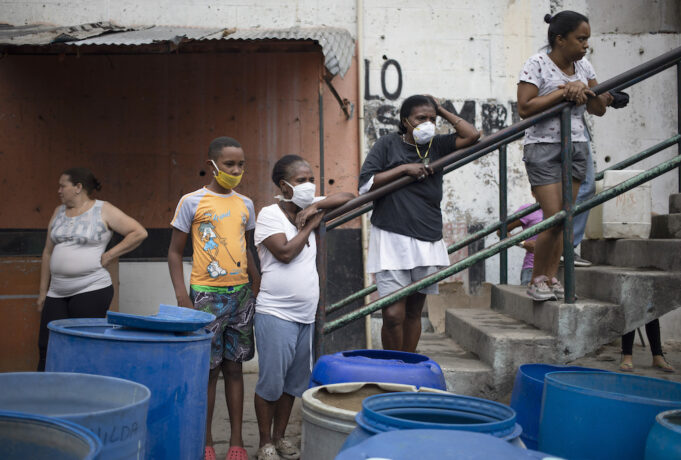“For the day of the LORD is near for all the nations. Just as you have done, it will be done to you. Your dealings will return on your own head.” —Obadiah 1:15 (Bible)
The sins and misdeeds of the United States sordid foreign policy record of imposing debilitating sanctions on nations she has adversarial relations with was scrutinized and called out in a new report. The “We Don’t Deserve This: The Impact and Consequences of U.S. Sanctions” report is an independent review of America’s practice issued by the Sanctions Kill Coalition, a collective of social justice and human rights organizations. The report was released Sept. 12. A “Sanctions Kill” webinar sponsored by the United Anti-War Coalition was held virtually on Sept. 12 to discuss U.S. sanctions in Latin America and Africa and to introduce the report.
“We want to show the extent of the U.S. crime which has been denounced again and again in the United Nations General Assembly by a whole list of countries,” said Sara Flounders, co-founder of the International Action Center, and moderator of the webinar. “That hasn’t stopped the U.S. government,” she added.
Ms. Flounders questioned how far the U.S. was willing to go in its “lawlessness” and “criminal enforcement” of sanctions. “In recent decades, the U.S. has increasingly used sanctions as an instrument of foreign policy,” said the report’s introduction.
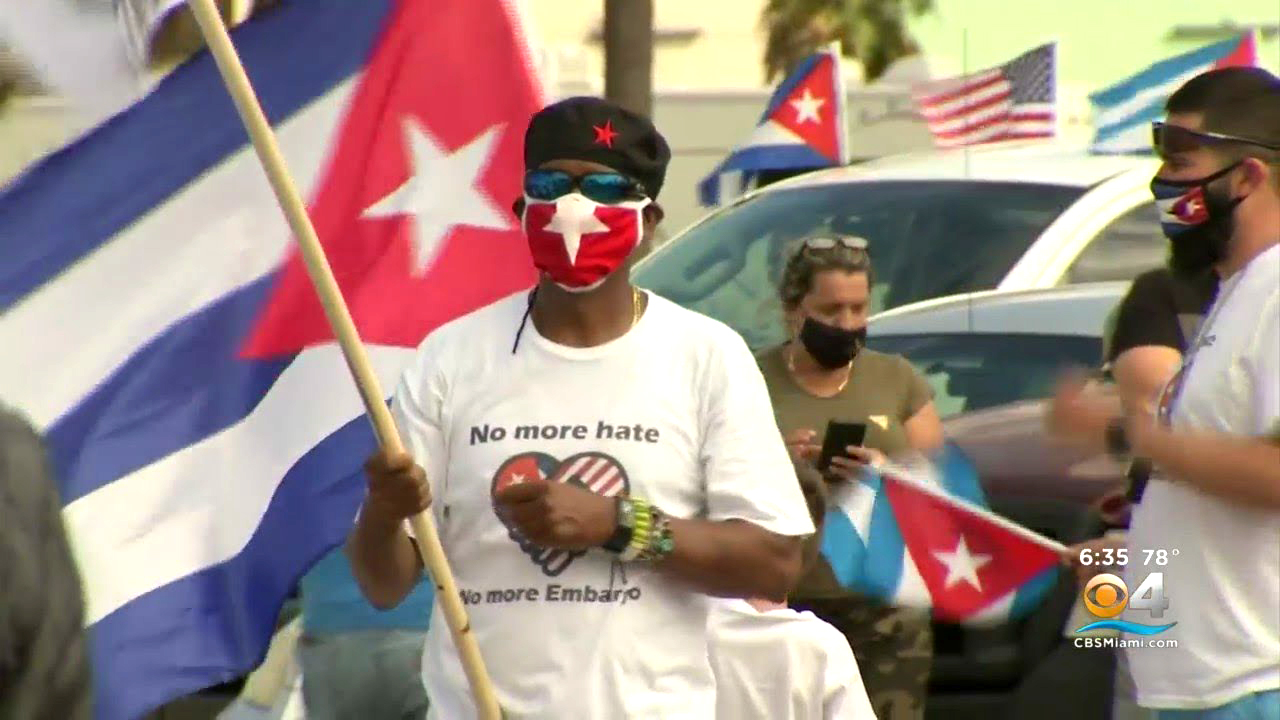
There are a growing number of voices and nations worldwide that expressed deep criticism of the U.S. sanction regime. Some rights advocates charge America’s actions as Crimes Against Humanity.
“We need to keep in mind that what the U.S. is doing around the world…is illegal. It should be resisted by nations,” said Margaret Flowers, of PopularResistance.com.
“What we’re doing in all of these countries is driving isolation of the United States,” she added.
Ms. Flowers reasoned that America is failing to achieve its objectives, particularly in Latin America and is driving relationships between the region and her other foes like Russia, China, and Iran.
The Sanctions Kill website pointed out that there is a disparity between sanctioning nations and sanctioned nations. Countries imposing economic sanctions are the wealthiest, most powerful, industrially developed countries with the intention to “choke” the economies of poor, formerly colonized nations, said the website.
Others observe that sanctions are a part of America’s fiendish policy of maintaining hegemony as a global thug, even at the expense of the innocent.
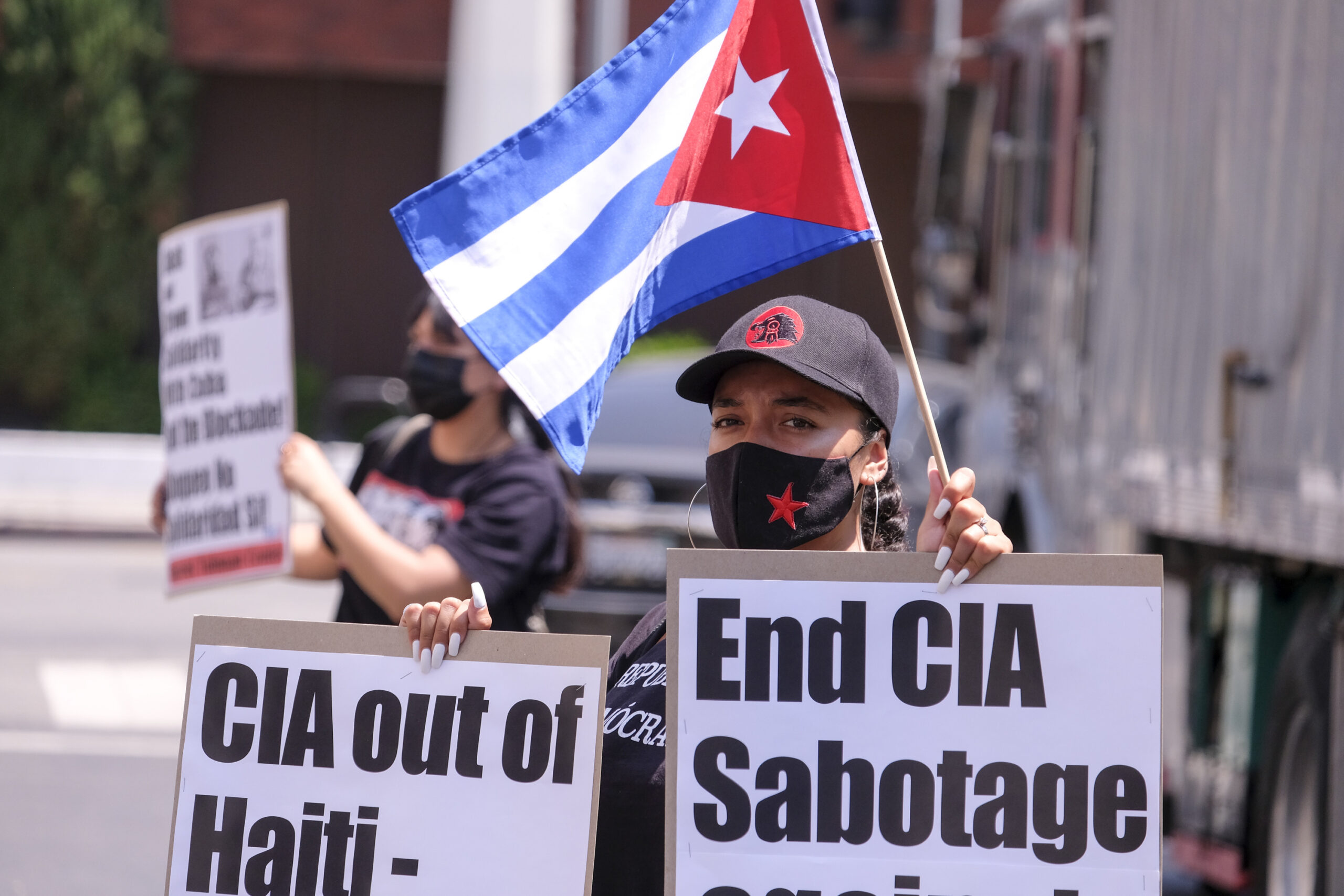
The Honorable Louis Farrakhan of the Nation of Islam has been a voice warning America that her obstinate behavior is causing isolation and loss of “true” friendship globally. “The people of the world hate America because of America’s policies,” wrote Minister Farrakhan in a 1985 article reprinted Aug. 31 in his weekly Final Call column. “They do not hate the American people; they hate the American government,” he said.
America often justified sanctions under the pretense that the targeted nation poses a “serious risk” and iminent threat to America’s national security and foreign policy objectives. In theory sanctions are meant to accomplish geopolitical goals. However, research indicates that after the economic damage and cost of life, sanctions ultimately fail, says a February 2020 Cato Institute analysis.
The “We Don’t Deserve This” report delves into the impact of U.S. sanctions on developing nations in Africa, the Caribbean, and the Middle and Far East. The 35-page document is based on official reports, independent research, and polls among people from the sanctioned nations of Cuba, Iran, Nicaragua, Venezuela, Zimbabwe, and on-the-ground fact-finding in Syria.
The findings illustrate how America, the number one global economy and superpower, uses sanctions as an instrument of “economic terrorism” to crush geopolitical opponents.
“Sanctions are a tool of imperialism to coerce or to bully the targeted country to submit to imperialist domination,” explained Asantewaa Nkrumah-Ture, of Black Alliance for Peace, an anti-imperialism organization.
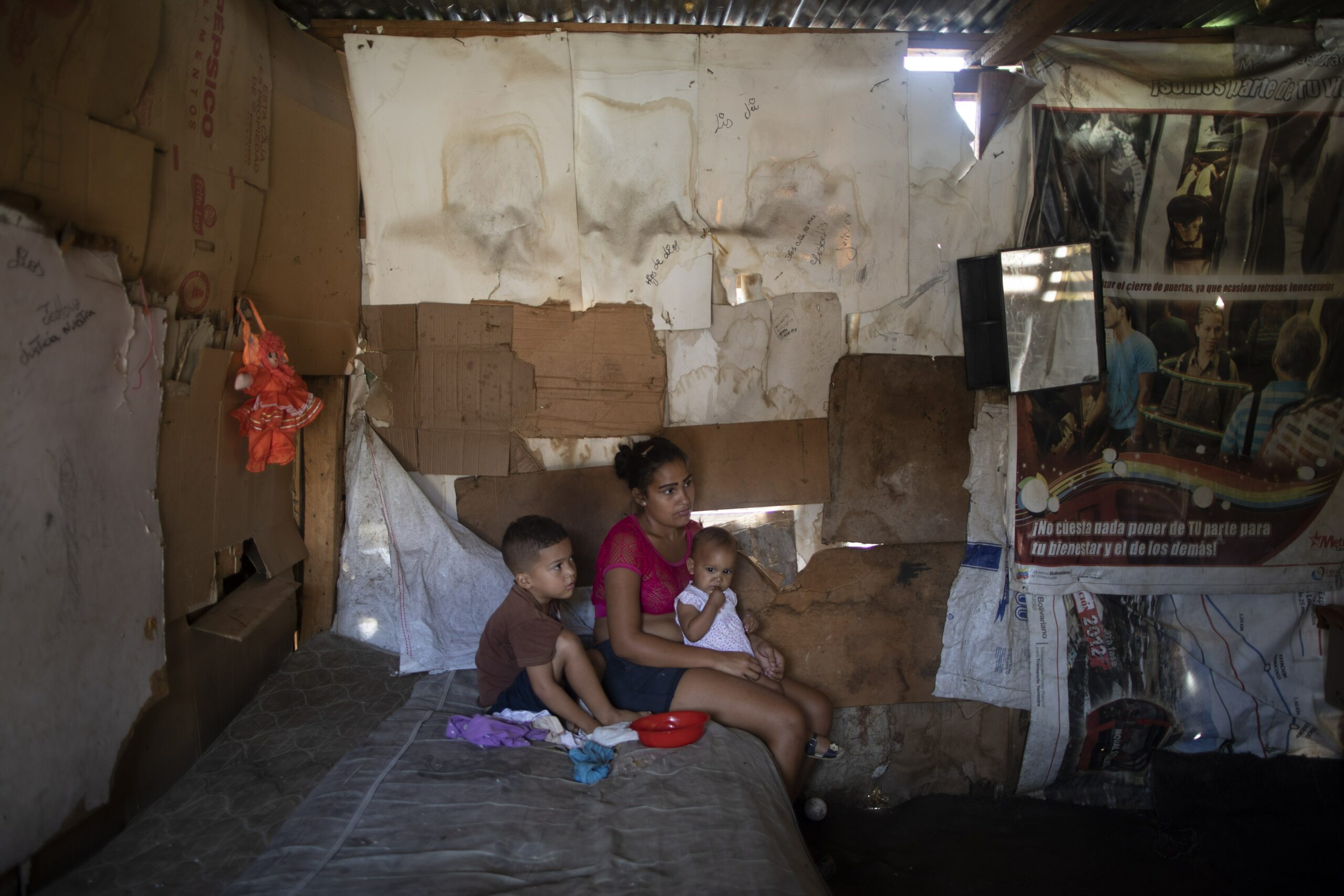
Ms. Nkrumah-Ture gave an overview of U.S. sanction regimes as a mechanism that the U.S. has a lengthy history of using going back to the 1940s. She said the practice often harms the target nation’s most vulnerable citizens—the young, the elderly, sick and disabled people which is against international law.
International conventions like the Geneva and Nuremberg Conventions, the UN Charter and Universal Declaration of Human Rights, all prohibit targeting defenseless civilians. Some observers characterize sanctions as nothing less than the most brutal form of warfare.
To implement sanctions means restricting relations between a country and the global community of nations. Sanctions come in various forms such as blocking financial transactions and foreign assistance, freezing assets, and restricting commercial trade of arms and crucial items like food and fuel. Generally, the measure is imposed through the UN Security Council.
However, most U.S. sanctions are “unilateral coercive measures” meaning not legally authorized by the UN and imposed by the U.S. alone, said the report.
“It’s a crime against humanity, its collective punishment, but these coercive measures violate a number of different international laws,” said Ms. Flowers.
Since these sanctions deprive targeted countries of revenues to support essential infrastructure and public services for populations, they are a form of “collective punishment, comparable to a war-time siege” as stated in the Geneva and Hague Conventions, both signed by the U.S.
America has been an international snooper and meddler in other nations’ affairs. For nations that resist interference, America punishes them with crippling sanctions to cause economic and inhumane hardship, destabilization, and popular dissent with an aim of regime change. This is the strategy especially for Cuba, Venezuela, Syria, and Nicaragua.
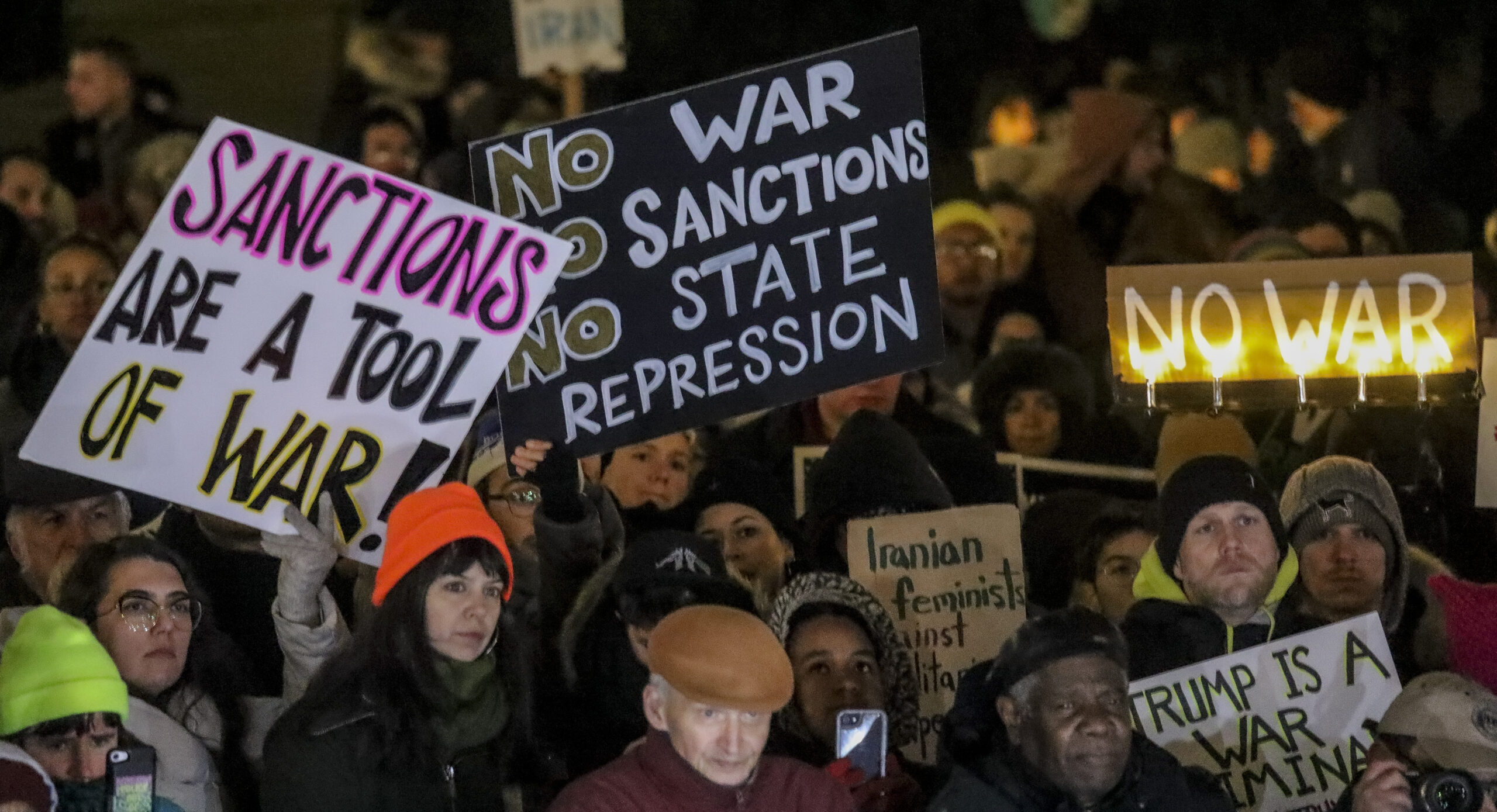
Sanctions as a destabilizing tool has been Washington’s modus operandi for decades. For example, the U.S. embargo on Cuba began in 1958 and has been the foundational stone of domestic suffering and over 600 attempted CIA assassinations on the late Fidel Castro, who died in 2016 of natural causes at 90.
In 1986 America sanctioned the Socialist Libyan Jamahiriya led by Muammar Gadhafi with economic, trade, and travel bans that adversely effected the Libyan people. The sanctions were for alleged involvement in terrorist attacks against the Rome and Vienna airports in December 1985 and lifted in 2004 after Libya agreed to relinquish its nuclear weapons program. Seven years later in shameless duplicity America re-sanctioned and invaded Libya and backed the killing of Mr. Gadhafi.
In August 1990, grueling sanctions were imposed on Iraq, originally intended to force Iraq to withdraw from neighboring Kuwait, its disputed territory at the time. According to several studies, decades into the early 2000s sanctions drove mass poverty and upwards of 350,000 Iraqi deaths, including children.
In August 2011, former President Barack Obama determined Syrian President Bashar al-Assad “must go,” and signed an executive order that froze Syrian government assets, banned importing Syrian oil, and legally barred American investing and trading with Syria. Then secretary of state Hillary Clinton assured the measures would “strike at the heart of the regime” rendering it unable to fund its security forces and harden the punch for regime change. Now, 10 years later Mr. Assad is still there. These only a few examples.
To exacerbate the suffering of an entire civilian population during a severe health crisis, to force regime change is morally corrupt and blatant disregard for basic human rights, the report further stated. The report cited a mixture of “voices from the sanctioned” describing their quality of life under embargo.
“The embargo that (President Joe) Biden is enforcing … is a cruel policy designed to make our lives miserable,” said Pablo, a musician/composer who has resided in Havana, Cuba, since 1996.
He compared the U.S. government embargo to a cop with its knee on the throat. “We can’t breathe!” he added, calling the blockade an act of war.
“The financial reserves robbed from our nation are not available for the maintenance and replacement of parts for our water system,” said Ana in Venezuela.
Sometimes there is no distribution of water for months, forcing people to walk long distances carrying water which is harmful to health, hygiene, and the economy. “People who are not able to carry water, like the elderly and disabled, must pay high prices for it,” Ana said.
U.S. sanctions affect a third of humanity with more than 8,000 measures impacting 39 countries, one-third of which are in Africa.
“Sanctions, we can see are very deliberate…elaborate, and strategic, designed to cause the most harm to the most people,” said Ms. Nkrumah-Ture.
The report details America’s offensive record which she must be accountable for, as past empires reaped what they had sown.
“She must get a taste of what she has put upon other people,” wrote the Honorable Elijah Muhammad, the Eternal Leader of the Nation of Islam, in his book, “Message To The Black Man in America,” in a section called “Make America Know Her Sins.” He wrote America’s troubles are by Divine decree and God Himself is stirring up the nations against her for the trouble she has fostered in foreign lands.
A key finding in the report was the disturbing impact of U.S. sanctions on nations fighting the Covid-19 scourge. According to the UN, sanctions hindered the response to Covid-19 resulting in many people dying and the pandemic spreading further.
Last year the U.S. ignored UN Secretary General Antonio Guterres’ appeal for sanctioning powers to wave sanctions while the world fought against the virus.
The administration of former U.S. president Donald Trump added over 240 new sanctions to Cuba and so far President Biden has not reversed any decisions as many expected him to do.
Although Cuba was successful in developing safe Covid-19 vaccines and treatments for the Cuban people, the embargo blocked supplies like syringes from coming in.
A 2020 report from Alena Douhan, the special rapporteur on the Negative Impact of Unilateral Coercive Measures on the enjoyment of human rights in the course of the coronavirus pandemic, condemned the U.S. hardline sanction regime.
“The United States trade embargo against Cuba has not been eased since the start of the Covid-19 crisis,” Ms. Douhan reported after urgent appeals to the U.S. government to lift the embargo.
In August, Venezuela asked the International Criminal Court (ICC) to investigate U.S. sanctions as crimes against humanity and provided The Hague-based court with evidence.
Venezuelan Vice President Delcy Rodriguez announced Aug. 25 a dossier showing how U.S. sanctions affected Venezuelan rights to health, food, and economic development.
“We have obtained information on how (the sanctions) affected the medicine-producing industry in Venezuela. More than half the medicine-producing transnationals in the country left,” Ms. Rodriguez said.
She said all but 10 of the 150 individual companies affected by the sanctions were privately-owned, adding that Washington has also targeted specific assets, including 30 oil tankers and 58 aircraft. The aim is ousting President Nicolas Maduro and replacing him with proverbial puppet-on-a-string Juan Guaidó, observers charge.
The Washington-based Center for Economic and Policy Research estimates U.S. sanctions had caused more than 40,000 deaths in Venezuela in 2017-2018.
Ms. Douhan said targeted countries face shortages of medications and medical equipment, including oxygen supplies and ventilators, protective kits, spare parts, software, fuel, electricity, drinking water and water for sanitation.
The strength of U.S. global influence is enormous. U.S. sanctions and extraterritorial claims—or third-party entities—have led to the imprisonment of businesspersons and diplomats and the violation of international treaties, said the report.
The United States imposes broad trade embargoes as well as targeted sanctions that typically involve financial restrictions against entities and individuals. Since the Covid-19 pandemic began, the United States has broadened its use and threats of sanctions, for example, by considering new types of sanctions in connection with an effort to accuse China of the spread of the disease, such as the lifting of China’s sovereign immunity. The United States enforces its sanctions extraterritorially, thus foreign entities and individuals dealing with sanctioned countries can face United States penalties if the United States claims jurisdiction over an element of the transaction, such as the use of U.S. dollars.
Omowale Clay of the New York based December 12th Movement said despite unjust sanctions, he observed targeted countries move forward. “These countries that are battling sanctions on the other hand are doing tremendous things … pushing their country and development forward,” stated Mr. Clay.
Mr. Clay was speaking on Africa, Zimbabwe and strides made despite U.S. sanctions and international pressure.
“In the midst of sanctions for decades they’re producing their own vaccines for the people precisely because imperialism uses medicine as a weapon against the people,” he pointed out.
The United States has had Zimbabwe under sanctions for over 20 years. “It was targeted because they had the audacity to liberate themselves … seize the land that was taken from them and turn it over to the people,” said Mr. Clay.












